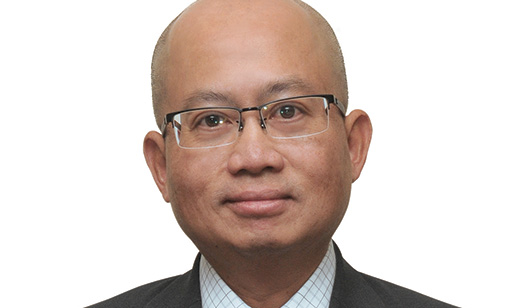News Backgrounder
No great leap forward for Indian aviation
July 1st 2016
Finally, the Indian government has revised its aviation policy and, as expected, it has not pleased anyone. For ambitious new airlines, one of the biggest bones of contention had been the 5/20 rule. Read More » This regulation only allowed airlines to fly internationally if they been in business for five years and had a fleet of 20 aircraft.
Under the new policy, airlines can begin flying abroad earlier than five years, but they still must have a 20 plane fleet and operate 20% of their capacity domestically.
 |
| Vistara chief executive, Phee Teik Yeoh: lost the battle for now to abolish aviation’s 5/20 rule |
“We want airlines to start flying quicker so there is more competition,” said civil aviation secretary, R.N. Choubey, when he announced the new policy in mid-June.
Although newcomers to Indian aviation, TATA/Singapore Airlines joint venture, full-service Vistara, and AirAsia India welcomed the relaxation of the 5/20 rule, a regulation they had wanted to be abolished.
Vistara chief executive, Phee Teik Yeoh, gave his qualified support for the decision. “We would have preferred that the rule be completely abolished to ensure Indian aviation achieves its full potential.” He added it was “very encouraging to see that the government has established a policy which promotes the overall growth of the country”.
Said Amar Abrol, chief executive of AirAsia India: “although an 0/0 or 0/10 would have been more than welcome, the amendments made to the policy are encouraging.”
“The policy gives us a clear direction to ramp up our operations in India and grow our business domestically before we scale our operations to fly international. We will focus on aggressively investing in India and increasing the fleet six to our target of 20 aircraft,” he said.
Singapore Airlines CEO, Goh Choon Phong, said recently: “Ideally, there should not be a limitation. If you look at the set up outside India, an airline with two aircraft can fly to India. So I see little reason [for it], especially if you are satisfied with the way it has set up safety. Once all that is satisfied, it should not be treated worse than an external airline. Objectively, there should be no requirement at all.”
The watered down regulation does not mean Indian airlines will rush into launching international routes. Vistara has 11 A320s and is at least a year away from having the 20 planes needed to fly abroad. AirAsia India has six A320s and its fleet growth plans remain unclear.
The policy has failed to fully please parties on both sides of the argument. Incumbent carriers such as Jet Airways, IndiGo, SpiceJet and Go Air, through the Federation of Indian Airlines (FIA), fiercely opposed the rule’s revision. They argued they had to comply with 5/20 in their development, so new operators also should do so. FIA had warned that if 5/20 was abolished or adjusted the government also should do away with Route Dispersal Guidelines (RDG), a set of rules that force airlines to fly a percentage of their flights on tier-II and tier-III secondary routes, which are often unprofitable.
“We stick to our stand against the abolishing or relaxation of 5/20. We have also said you can’t do away with 5/20 and keep RDG. Why should we keep operating unprofitable flights?” said an FIA spokesperson.
Vistara’s Yeoh said he hoped the new policy would lift existing restrictions on new carriers operating codeshare flights with foreign partners. He said Vistara has been talking to potential partners such as British Airways, Emirates Airline, All Nippon Airways and Finnair. He added the carrier may accelerate its fleet plans.
The arrival of its 20th aircraft is scheduled for June 2018. The airline could lease aircraft earlier than that date and would be looking at a mix of narrow body and wide body planes with flights to the UK and the U.S. being considered.
Even airlines that have 20 planes are not quite ready to enter the international fray. GoAir, which recently took delivery of its 20th jet and the first of 72 A320NEOs it has on order, does not intend to serve regional destinations until next year.
Civil Aviation Secretary Choubey told local media: “GoAir has expressed its intention to fly overseas from next calendar year. It has indicated some regions,” he said. Adding that the Gulf and Europe were among destinations the Mumbai-based operator was considering. But he said the airline “has not yet submitted a formal plan in this regard”.
As well as adjusting the 5/20 rule, the new policy brought good news for maintenance, repair and overhaul (MRO) businesses. The policy waives all royalties. They can constitute up to 20% of their total costs that MRO facilities now have to pay to airports where they operate. The transport ministry has said it will try to persuade state governments to do away with value added tax on MRO activities. “These are a great set of steps, especially the one on royalty. Royalty payments can prove pretty costly for MRO operators,” said Srinivasan Dwarkanath, president of the Airbus division in India. “India currently has about 400 commercial airplanes and massive order books from airlines. We need good MROs. We need the existing ones to grow,” he said.